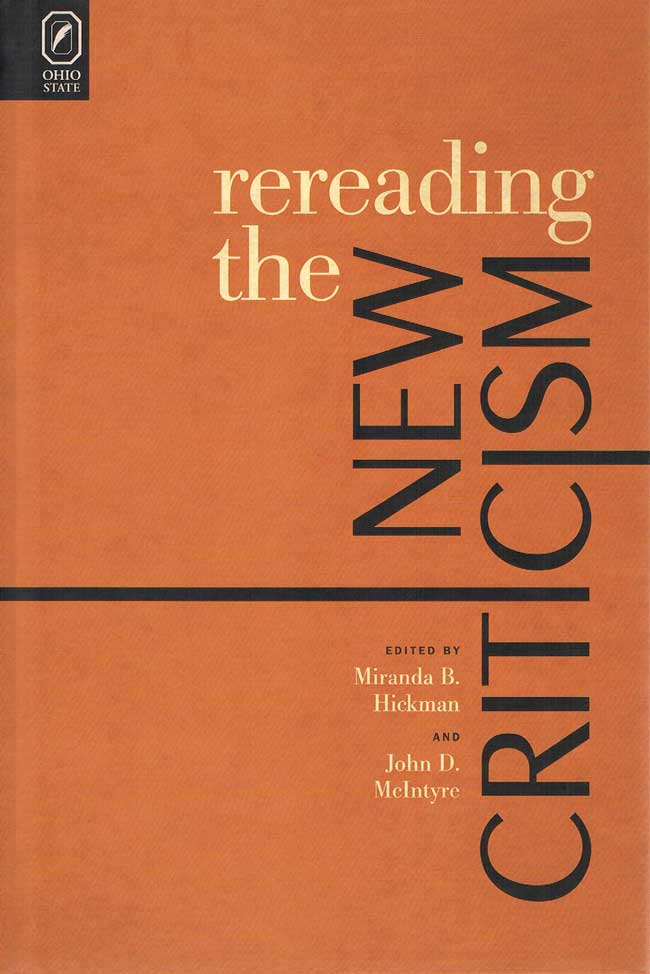Rereading the New CriticismEdited by Miranda B. Hickman and John D. McIntyre |  3/28/2012 Literary Criticism/General 255 pp. 6x9  $54.95 cloth 978-0-8142-1180-9 Add cloth to shopping cart $14.95 CD 978-0-8142-9279-2 Add CD to shopping cart $24.95 paper 978-0-8142-5236-9 Add paper to shopping cart Shopping Cart Instructions Review/Change Shopping Cart & Check-out | |||
|
“Rereading the New Criticism appears at an auspicious time in the continuing reevaluation of the history of literary criticism. This is a time of critical retrenchment, in which questions of form that have been ruled ‘out of court’ for some years now are returning with gathering force. This treatment of the New Critics is very timely, and should appeal to scholars of literary criticism, critics interested in the new questions of aesthetics and form, and to those looking for a useful teaching text for courses in literary criticism.” —Scott Klein, associate professor and English department chair, Wake Forest University Committed to rigorous “close reading” and engagement with the “text itself” rather than information “extrinsic” to the text, John Crowe Ransom and a group of colleagues in the American South of the 1930s established a vanguard approach to literary criticism they called the “New Criticism.” By the 1940s, New Critical methods had become the dominant pedagogy in departments of English at colleges and universities across America, enjoying disciplinary hegemony until the late 1960s, when an influx of new theoretical work in literary studies left the New Criticism in shadow. Inspired by a range of new commentary reconsidering the New Criticism (from critics including Jane Gallop, Terry Eagleton, Charles Altieri, and Camille Paglia), the essays in Rereading the New Criticism reevaluate the New Critical corpus, trace its legacy, and explore resources it might offer for the future of theory, criticism, and pedagogy. Addressing the work of New Critics such as Ransom, Cleanth Brooks, and Robert Penn Warren, as well as important forerunners of the New Critics such as I. A. Richards and William Empson, these ten essays shed new light on the genesis of the New Criticism and its significant contributions to the development of academic literary studies in North America; revisit its chief arguments and methods; interrogate received ideas about the movement; and consider how its theories and techniques might inform new methodologies for literary and cultural studies in the twenty-first century. Miranda B. Hickman is associate professor of English at McGill University. John D. McIntyre
is associate professor of English at the University of Prince Edward Island. | ||||

